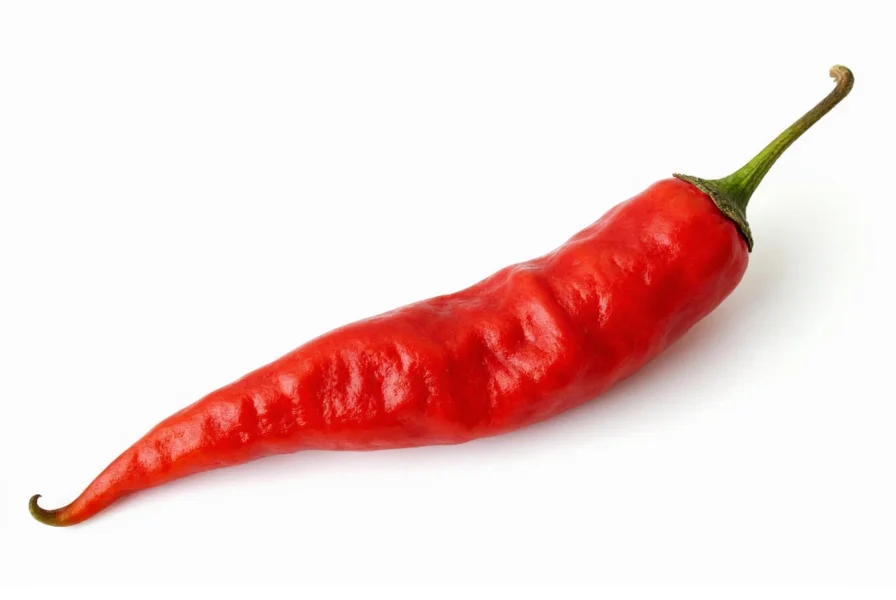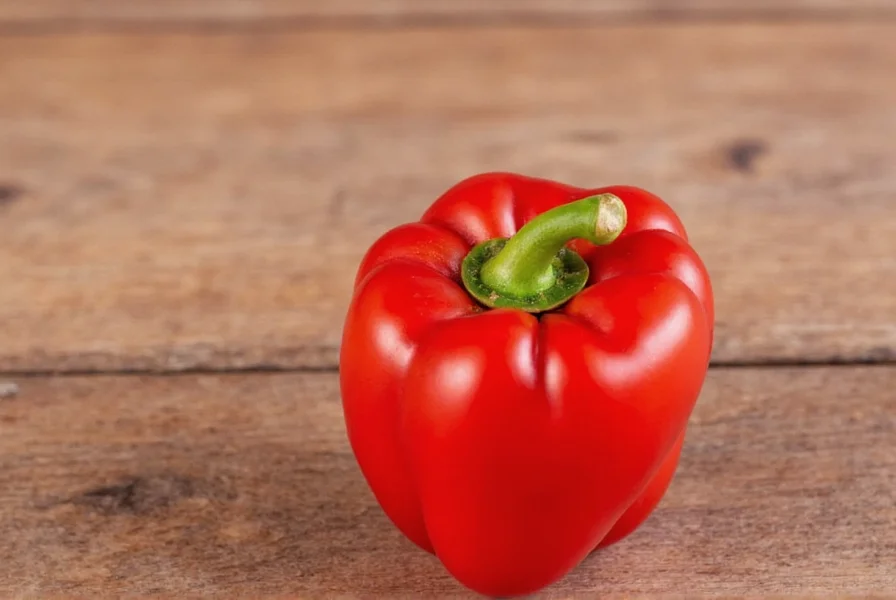Understanding Pepper X: The World's Hottest Chili
When discussing extreme heat in chili peppers, Pepper X represents the current pinnacle of capsaicin concentration. This remarkable cultivar didn't emerge overnight but resulted from over a decade of selective breeding by chili enthusiast Ed Currie, founder of PuckerButt Pepper Company. Unlike naturally occurring peppers, Pepper X is a carefully engineered hybrid designed specifically to push the boundaries of heat while preserving edible flavor profiles.
Heat Measurement and Scientific Verification
The official certification of Pepper X's heat level required rigorous scientific testing. Multiple samples were analyzed by Winthrop University's laboratory using high-performance liquid chromatography (HPLC), the industry standard for precise capsaicinoid measurement. The verified average of 2.69 million SHU represents a significant leap beyond the Carolina Reaper's previous record of approximately 1.64 million SHU.
| Pepper Variety | Average SHU | Guinness Recognition | Year Certified |
|---|---|---|---|
| Pepper X | 2,690,000 | World's Hottest | 2023 |
| Carolina Reaper | 1,641,183 | Previous Record Holder | 2013 |
| Trinidad Moruga Scorpion | 1,200,000 | Former Record Holder | 2012 |
Physical Characteristics and Flavor Profile
Despite its extreme heat, Pepper X maintains distinctive physical traits that differentiate it from other super-hots. The peppers typically grow to 1.5-2 inches in length with a bumpy, irregular surface and a characteristic stinger-like tail. Their color transitions from green to a deep red when fully mature.
What makes Pepper X particularly noteworthy among chili enthusiasts is its complex flavor profile that emerges after the initial heat subsides. Many tasters describe notes of:
- Fruity sweetness reminiscent of stone fruits
- Subtle smokiness
- Earthy undertones
- Distinctive tropical fruit notes

Safety Considerations for Handling Pepper X
Working with Pepper X requires serious safety precautions that go beyond standard kitchen practices. The extreme capsaicin concentration means even minimal contact can cause severe irritation. Professional handlers recommend:
- Wearing nitrile gloves (latex provides insufficient protection)
- Using eye protection to prevent accidental transfer
- Working in well-ventilated areas to avoid inhaling capsaicin particles
- Having dairy products readily available for heat mitigation
- Avoiding contact with skin or mucous membranes at all costs
Many first-time experiencers of Pepper X report not just oral burning but systemic effects including sweating, shaking, and temporary changes in heart rate. Medical professionals strongly advise against consuming pure Pepper X without proper preparation and supervision.
Culinary Applications of the World's Hottest Pepper
Despite its extreme heat level, Pepper X has legitimate culinary applications when used appropriately. Professional chefs and sauce makers employ it in minute quantities to add depth and complexity to dishes. Common legitimate uses include:
- Specialty hot sauces where a few drops provide significant heat
- Infused oils for controlled heat application
- Pepper extracts for commercial food production
- Flavor enhancement in extremely small quantities
Home cooks should exercise extreme caution when working with Pepper X. A single seed contains enough capsaicin to overwhelm an entire dish. Many experienced chili enthusiasts recommend using specialized tools like micro-syringes to measure minuscule amounts rather than attempting to handle the pepper directly.
Pepper X vs. Carolina Reaper: Understanding the Difference
While both peppers come from Ed Currie's breeding program, several key differences exist between Pepper X and the Carolina Reaper:
- Heat level: Pepper X averages 2.69 million SHU compared to Carolina Reaper's 1.64 million SHU
- Flavor development: Pepper X offers more pronounced fruity notes after the initial heat wave
- Physical structure: Pepper X tends to have a more irregular, bumpy surface with a distinctive stinger
- Consistency: Carolina Reaper shows more variation in heat levels between individual peppers
- Commercial availability: Carolina Reaper products remain more widely available than Pepper X
Responsible Consumption Guidelines
For those considering experiencing Pepper X, following responsible consumption practices is essential:
- Start with commercially prepared products rather than raw peppers
- Never consume on an empty stomach
- Have dairy products (milk, yogurt) immediately available
- Avoid alcohol as it can intensify the burning sensation
- Don't attempt "one-up" challenges without proper preparation
- Respect your body's warning signals and stop if experiencing distress
Medical professionals warn that extreme chili peppers like Pepper X can trigger adverse reactions in individuals with certain medical conditions, including gastrointestinal issues, cardiovascular concerns, and respiratory sensitivities.
Common Misconceptions About Pepper X
Several myths have developed around Pepper X since its certification:
- Misconception: Pepper X is dangerous or toxic
Reality: While extremely hot, it contains the same capsaicinoids as milder peppers, just in higher concentrations - Misconception: All Pepper X plants produce identical heat levels
Reality: Like all chilies, heat varies based on growing conditions, soil, and climate - Misconception: Pepper X has no culinary value beyond heat
Reality: When used properly, it contributes complex flavor notes appreciated by chili connoisseurs
The Future of Super-Hot Peppers
With Pepper X now holding the official title, many wonder what's next in the world of super-hot peppers. Ed Currie has indicated that his breeding program continues to develop new varieties, though he emphasizes flavor development alongside heat. The future likely holds peppers with more balanced heat-to-flavor ratios rather than单纯 pursuing higher SHU measurements.
As the understanding of capsaicin genetics advances, we may see more targeted breeding that enhances specific flavor compounds while managing heat levels. This evolution represents a maturation of the super-hot pepper market from novelty items toward legitimate culinary ingredients.











 浙公网安备
33010002000092号
浙公网安备
33010002000092号 浙B2-20120091-4
浙B2-20120091-4